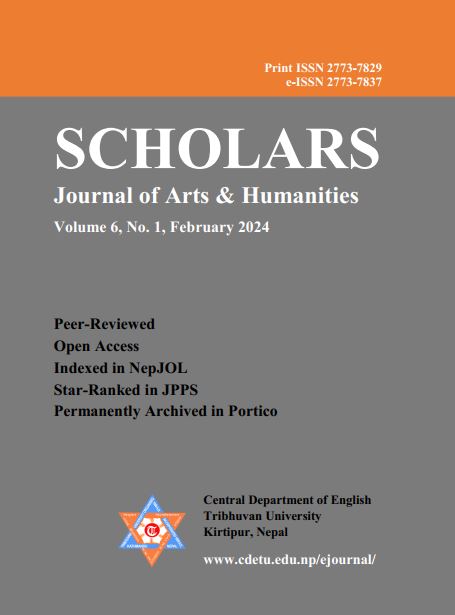Food as a Healing Space for a Diasporic Identity in Grace M. Cho’s Tastes Like War: A Memoir
DOI:
https://doi.org/10.3126/sjah.v6i1.62723Keywords:
Diaspora, food, culinary identity, culinary kinship, culinary homeAbstract
This paper aims to explore a connection between diasporic identity and culinary choice revolving around the life of the principal character Koonja in Grace M. Cho’s Tastes Like War: A Memoir (2021). It investigates how Koonja performs her culinary choices as a tool to heal and nurture her abjected diasporic identity. To do so, drawing upon the theoretical insights from diaspora and culinary identity, the paper employs the method of qualitative content analysis while analyzing and interpreting the memoir. The paper tracks Koonja’s sense of being displaced and dislocated for various reasons: Japanese and American violence in South Korea, the trauma of losing her family members, rejection and stigma in South Korea as a Yankee whore, giving birth to a son whose father was a mystery, marrying an American man in South Korea and immigrating to the United States (US) and discriminations in the US, and all these turmoils finally causing schizophrenia. The analysis and interpretation of the memoir reveal a finding: amidst Koonja’s sense of diasporic displacement and worthlessness, culinary kinship functions as a means of assimilation, and her culinary choices, which have been saturated by nostalgia for and memory of Korean food, reunite her with an emotional and a gustatory home. The finding implies a therapeutic connection between diaspora and culinary choices revealing food as a healing space in the life of Koonja. Hence, the paper not only offers a fresh perspective to look at the memoir but also creates avenues for critical dialogues in the discourse of diaspora and culinary identity.
Downloads
Downloads
Published
How to Cite
Issue
Section
License

This work is licensed under a Creative Commons Attribution 4.0 International License.
© Central Department of English, Tribhuvan University and Authors




